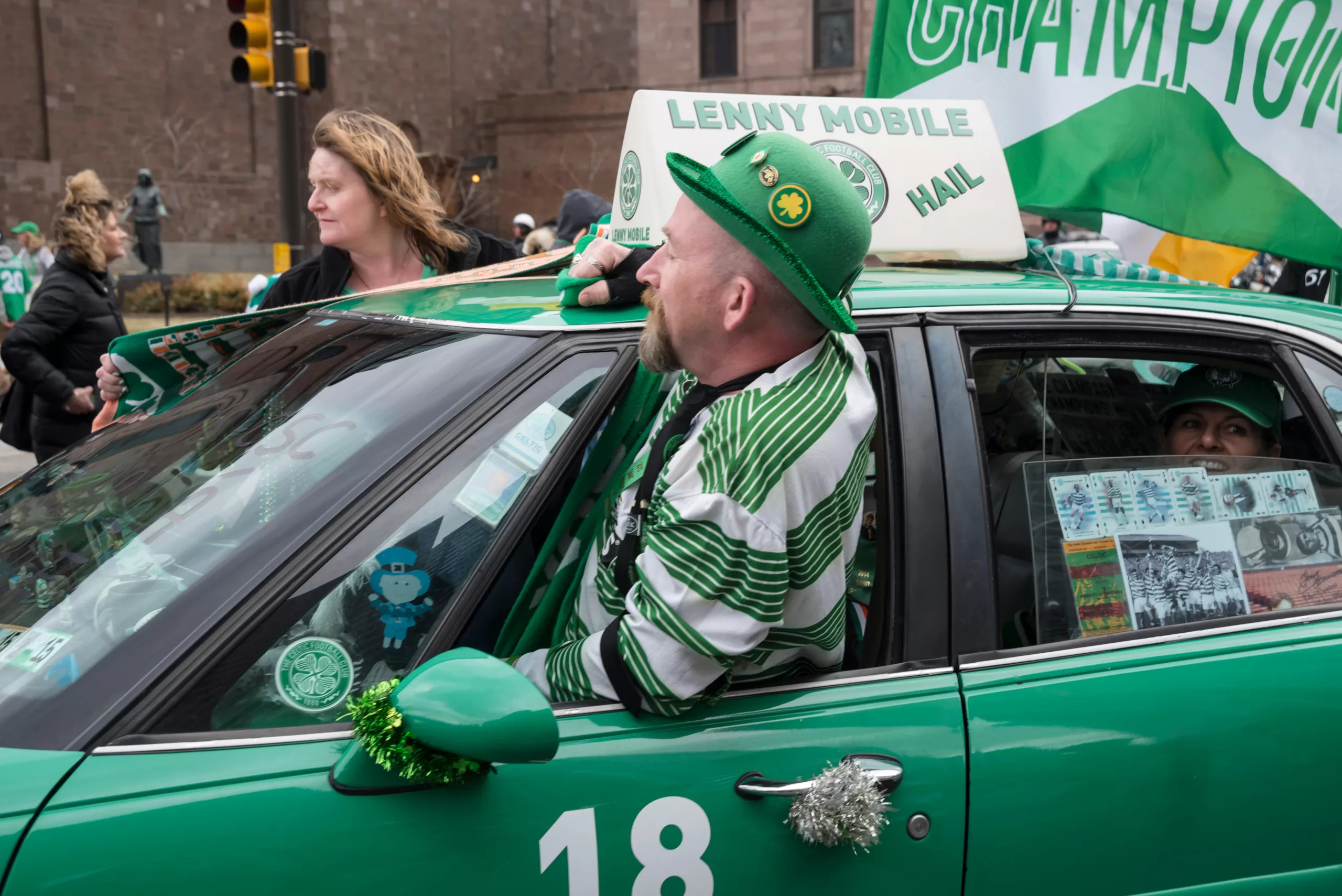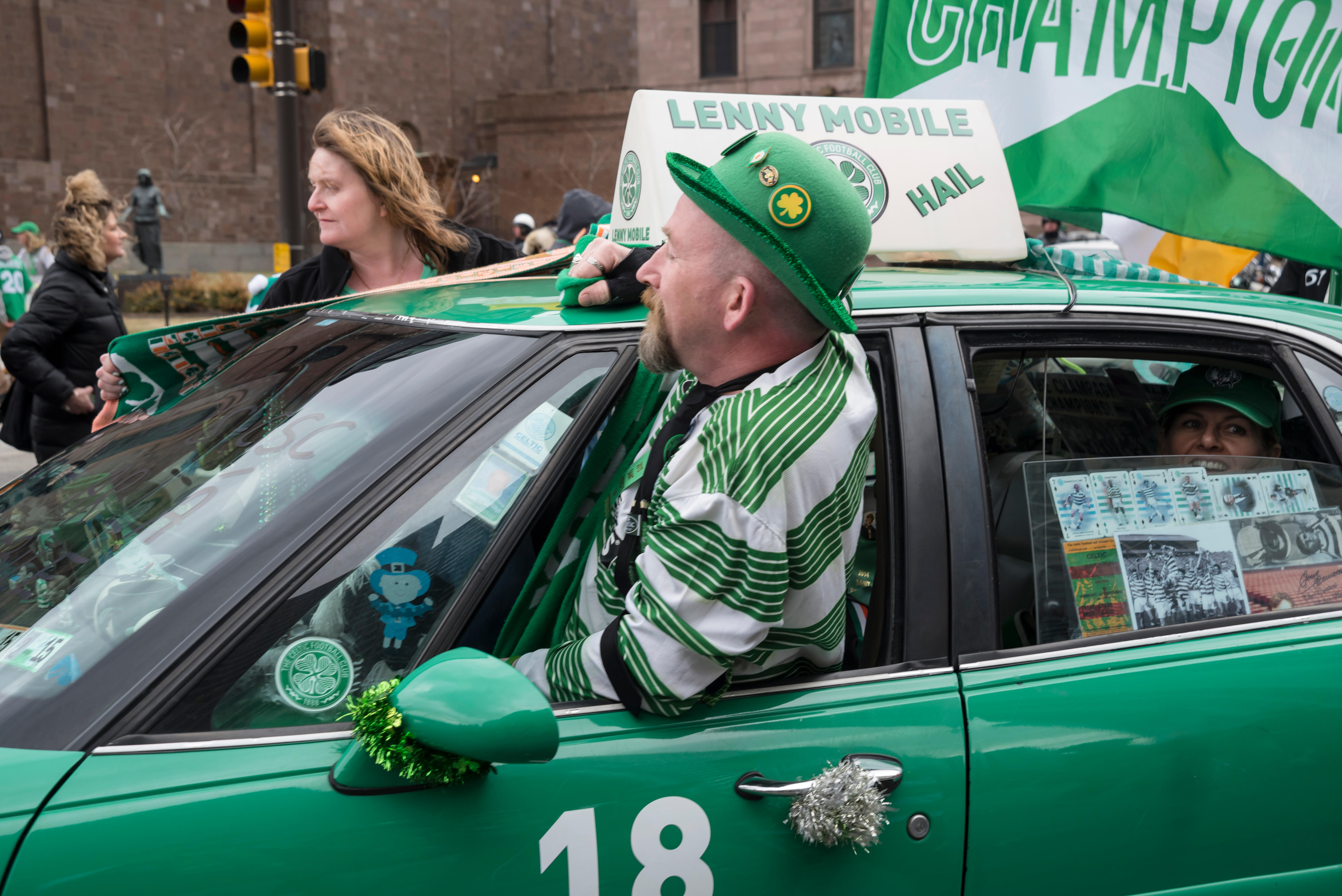Experts have warned motorists that flying an Irish flag from their car could see them forking out a fine of up to £1000.
While the festive spirit is infectious, driving experts told The Sun that it’s essential to approach the day with a sense of responsibility – especially when it comes to driving.
Whether you’re donning a leprechaun hat or flying the Irish flag on your vehicle, understanding the legalities and potential fines can save you from unwelcome penalties.
Ryan Walkden, a road safety expert at Zego Car & Van Insurance, said flying a flag on your vehicle could see you pulled over by police.
He explained: “In the UK, if a flag on your vehicle is deemed to cause a visual obstruction or pose a danger, you could face a fine.
“While there’s no set amount for such a specific violation, fines for driving with obstructed views can reach up to £1,000, along with potential penalty points on your licence.”
The car safety whizz also warned motorists about wearing fancy dress and hats while driving.
Although dressing up is all part of the fun on St Patrick’s Day, he said to make sure your outfit doesn’t compromise your ability to drive.
He said: “In the UK, if your costume or hat obstructs your view or interferes with your use of controls, you could be fined for driving without due care and attention.
“This fine can be hefty, potentially exceeding £100, and in more severe cases, you might face penalty points or even disqualification.”
Walkden also shared some other useful tips for those celebrating the day in Ireland or the UK.
He said: “The celebratory nature of St Patrick’s Day often leads to increased alcohol consumption. If you’re participating, plan your transportation accordingly.
“Designate a sober driver, or better yet, utilise public transport, taxis, or ride-sharing services.
“The UK police are on high alert during this period, conducting more frequent checks to curb drink driving.”
The road expert added that the swarms of pedestrians out on the roads celebrating pose an additional risks to drivers.
“Keeping your vehicle at a safe speed and being aware of your surroundings is key to a safe St Patrick’s Day,” he added.
It comes as The Sun previously warned motorists how you could be fined £2,500 for just standing next to your car on St Patrick’s Day.
Under UK law, it is entirely possible to be charged with drink driving without having been behind the wheel.
Driving or attempting to drive under the influence raises this to six months’ imprisonment, unlimited fines, and a driving ban of at least one year.
Causing death by careless driving while intoxicated could result in 14 years behind bars, unlimited fines, and a two-year minimum ban.
So, if you have consumed more than the legal alcohol limit it is not worth going anywhere near your vehicle.
If it can be proven that you were intending to drive a vehicle while under the influence of alcohol, then you could be charged with drink driving.
Meanwhile, here’s a glimpse into some quirky Irish laws:
The Leprechaun Law: An old law prohibiting the harming of leprechauns reflects Ireland’s rich folklore.
While you’re unlikely to meet a leprechaun, it’s a charming nod to Irish culture.
Public Singing in Dublin: Once upon a time, you needed a permit to sing or play music in Dublin’s public spaces.
While this is rarely enforced today, it’s an interesting aspect of Dublin’s regulatory history.
Easter Dancing: The prohibition of dancing on Easter Sunday might sound unusual, but it was part of Ireland’s traditional laws.
Such laws are more historical footnotes now but add to the unique character of Irish legislation.


